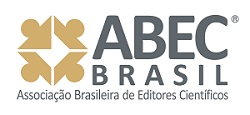Saline stress and salicylic acid on growth and quality of guava ‘Paluma’ seedlings
DOI:
https://doi.org/10.5039/agraria.v18i1a1991Keywords:
C7H6O3, seedling production, stress mitigation, water salinityAbstract
High salt concentrations affect plant growth and development, making it necessary to use methods to reduce the effects of saline stress. In the light of the above, the growth and seedling quality of guava ‘Paluma’ under water salinity and salicylic acid conditions were evaluated in this experiment. The experiment was conducted in a protected environment. The treatments were obtained by combining the electrical conductivity of irrigation water (0.3, 0.8, 1.9, 3.0, and 3.5 dS m-1) and salicylic acid (0, 0.3, 1.0, 1.7, and 2.0 mol L-1), in the 22 + 2 x 2 + 1 scheme, according to the Central Box Composite matrix, using a randomized block design, with four repetitions and five seedlings per plot. The increase in the electrical conductivity of irrigation water and salicylic acid alone inhibited the growth, biomass accumulation, and quality of the seedlings, with the exception of height, number of leaves, and dry biomass of roots and stem that were stimulated with the acid. Salicylic acid intensified the inhibition of seedling growth and quality under saline stress, but it attenuated the salt effect on biomass accumulation. Guava ‘Paluma’ seedlings are sensitive to salinity, and can be produced with water up to 0.8 dS m-1.



